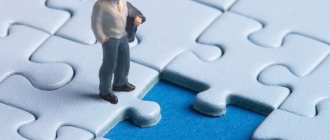In our country, according to various estimates, there are from 15 to 45 million people with socially significant hearing impairments, among them 1 million children and adolescents. The incidence of hearing loss and deafness is gradually increasing, while the emphasis is increasingly shifting towards the working population. Moreover, according to WHO, in 9 out of 10 cases, hearing loss can be compensated for by hearing aids - electroacoustic hearing correction. Therefore, the demand for such a profession as an audiologist is constantly growing.
An audiologist is a specialist whose activities are aimed at diagnosing various hearing disorders, as well as selecting the optimal methods for their treatment.
Do not confuse audiologists and otolaryngologists. An audiologist, unlike an ENT specialist, specializes in a more detailed study of pathologies of the ear and hearing system
What diseases does an audiologist treat?
An audiologist uses medication and physiotherapeutic treatment in practice, as well as, if necessary, surgical intervention.
Diseases and injuries treated by an audiologist:
- Meniere's disease. The disease affects the middle ear, causing hearing loss and tinnitus.
- Acoustic neuroma. This diagnosis is made when a benign tumor is detected that interferes with the functioning of the hearing organ. In addition to discomfort and hearing loss, this disease causes problems with coordination and balance.
- Otosclerosis. A disease caused by the growth of bone tissue in the middle ear area.
- Perforation of the eardrum. damage in which a hole is formed in the membrane. This prevents the body from performing its functions. The result is hearing loss in the affected ear.
- Senile hearing loss. With age, the human body loses a number of its capabilities, and hearing is no exception. The sensory hair cells that detect the signal die off, resulting in hearing loss.
- Noise in ears. It can occur for a number of reasons and can cause great inconvenience.
- Acoustic injuries. Sudden exposure to too loud a sound can damage the eardrum and cause fatal damage to the hair cells in the middle ear. Due to such an injury, a person can completely lose their hearing.
Where can I learn to be an audiologist?
An audiologist is a medical specialist; accordingly, he needs to have a specialized education. But due to its narrow profile, the training process can take up to 10 years.
First you need to complete six years of training in the following areas:
- "Medicine";
- "Pediatrics".
This is followed by a residency in otolaryngology, which will take another two years. And after completing residency, additional training follows, but for targeted training to become an audiologist.
In what cases is it necessary to consult an audiologist?
Like any doctor, you should contact an audiologist in a timely manner and do not neglect your condition. Timely treatment can save your hearing.
Signs that it’s time for you to see an audiologist:
- Ear pain;
- Noise in ears;
- Severe pressure in the ears;
- Discharge of fluids from the ear;
- Feeling of fullness in the ears;
- Hearing loss in one or both ears;
- Poor speech perception: you hear what the other person is saying, but you cannot make out what exactly it is.
- Your loved ones make comments to you that you speak too loudly, but it seems to you that you speak at a normal volume.
Particular attention should be paid to children. If parents have any suspicions that their child's hearing may be impaired, they should visit a specialist.
The main signs that something is wrong with your child’s hearing:
- The child does not respond to loud sounds;
- A child under one year old does not try to communicate, does not imitate speech;
- Delayed speech development: for example, a 3-year-old child speaks like a one-year-old;
- Difficulty communicating with peers.
Why does hearing deteriorate?
The reason that your hearing has become worse may be a simple cerumen blockage, and then you will leave the doctor’s office in perfect health.
But often things are not so simple. Reduced hearing can be a symptom of a disease, for example, sclerosis or another disease that requires complex treatment. Then not only an audiologist, but also a neurologist, or cardiologist, or dentist, or other specialist will take care of you. It all depends on the diagnosis.
It is also worth contacting an audiologist if ear congestion does not go away after scuba diving, flying on an airplane, or attending a concert with loud music. It is possible that you have a hearing injury.
You can also get a noise injury if you are constantly near a source of strong noise, for example, in a factory workshop. Under such working conditions, doctors recommend checking your hearing at least once a year, especially after forty years.
What examinations does an audiologist perform?
To diagnose the problem and choose a method to overcome it in their practice, audiologists use the following examination methods:
- Tympanometry. It is carried out in order to assess the condition of the auditory tubes and how the hearing reacts to sound signals at 11 frequencies.
— Electrocochleography. It is carried out when the patient complains of ear congestion, dizziness and hearing loss
- Otomicroscopy. A detailed examination of the external auditory canal and eardrum under a microscope to identify perforations and inflammation;
— Acoustic reflexometry. Study of human reactions to sound signals. Especially relevant for children;
— Tone-threshold audiometry. Study of human hearing capabilities. Used to diagnose hearing loss, identify the degree and nature of hearing loss.
What can cause hearing problems?
The examination helps the audiologist not only identify the existing problem, but also determine the reason why it arose; this plays a big role in choosing methods to solve it.
General characteristics of the direction
Audiology is based on two important medical areas – defectology and otolaryngology. Practitioners work with patients of all age categories and help them normalize their hearing. The next stage is adaptation to society. Most often it is dealt with by a psychologist, much less often by a defectologist with the appropriate specialization. A particularly difficult task faces a child psychologist, since it can be extremely difficult to build communication between a child with hearing problems and an absolutely healthy peer.
Content:
- General characteristics of the direction
- What is included in the list of specialist responsibilities
- What symptoms should you consult an audiologist for?
- Diagnostic methods and treatment features
- Preventive measures
Difficulties with adaptation are possible at any age. Do not be afraid to use the help of doctors to resolve internal conflicts, accept an illness, or get rid of fears.
Doctors belong to the category of clinicians (work only in medical institutions). An audiologist identifies hearing impairments, draws up a therapeutic course, and selects the most effective and safe medications. Treatment tactics are compiled individually based on clinical studies of each individual patient.
An audiologist is the same as an otolaryngologist, but with a greater practical and theoretical basis regarding auditory disorders. The specialist works not only with acquired, but also with congenital hearing disorders. Audiologists-surgeons are placed in a separate category. In addition to diagnosis and therapy, they perform surgical interventions to restore hearing function.
Audiologist's recommendations
Some simple advice from audiologists to patients and people whose hearing is fine:
- Avoid noisy places. Prolonged exposure to loud, high-intensity sounds can cause hearing damage!
- If noise cannot be avoided, protect yourself from it. Soundproofing – if your home is located in a noisy place. Personal hearing protection if you work in a noisy place - headphones, earplugs.
- Limit listening to music on headphones. Constantly wearing headphones (especially the “vacuum” type) can lead to rapid hearing loss. Try to limit yourself to an hour of listening per day, with a volume of up to 50% of the possible volume, and choose only high-quality headphones.
- Monitor your children's speech development. Delay is the first sign of hearing loss.
- Do not self-medicate. The human organ of hearing is a very fragile system that is easy to destroy. Do not use any medications: drops, ointments, poultices, tablets or solutions without a doctor’s prescription!
If you have a problem with your ears, don’t ignore it! Today it’s just pain and congestion, but tomorrow it could be complete deafness. The sooner you seek help, the greater the chance of maintaining your health.
Diagnosis and treatment
You should not self-medicate and neglect quality diagnostics and consultation with a specialist. Modern diagnostic methods make it possible to identify the true cause of the defect, which contributes to the timely selection of treatment methods and prevention of worsening of the condition.
For a qualitative assessment of hearing, in addition to otoscopy (examination of the external state of the hearing organs), you may be referred to an audiometry procedure, as well as to undergo certain laboratory tests if necessary.
Audiometry allows you to objectively assess various hearing parameters. This procedure is simple and completely painless. The examination takes place in a soundproof cabin, where you will have to put on headphones and listen to signals by pressing a certain button when they are clearly audible. The doctor records all the answers in a so-called audiogram (graph), which reflects the full picture of the hearing defect.
Unfortunately, in severe cases of hearing loss, hearing restoration is a very difficult and almost impossible task. But modern technologies offer us the use of new devices to once again restore contact with the world of sounds, even for patients with severe hearing impairment!
Audiologist appointment with Audionica hearing specialists
Audionica Hearing Specialists are proud of their staff of experienced audiologists who are able to solve almost any problem related to hearing loss or its pathology. Consultation with an audiologist is an important step in hearing aid treatment, especially if hearing loss is caused by any disease.
Audionica hearing specialists regularly undergo training in Russia and learn from the experience of foreign colleagues, becoming participants and speakers at domestic and international conferences on audiology and audiology. They are required to master the latest advances in technology in the field of audiology and hearing aids and do everything possible to restore people’s ability to hear.
Audionics also employs a pediatric audiologist, and has equipment for diagnosing hearing pathologies even in infants. Here the ear doctor will help you undergo the following examinations:
- Audio screening;
- Acoustic impedanometry, which includes tympanometry and reflexometry;
- Game speech audiometry for children from 3 to 5 years old.
Currently, appointments with an audiologist at Audionics are carried out only in Khabarovsk and Krasnoyarsk. You can find out about prices and sign up for a consultation from the administrator by phone number: 8-800-511-45-43
Hearing impairment is a worldwide problem.
The statistics are disappointing: every fifth person in the world has some form of hearing impairment. The problem of hearing loss tends to younger people and often middle-aged people complain of difficulty perceiving sound: according to WHO, 14% of people aged 45 to 64 years and 30% of people over 65 years of age have hearing defects of varying severity.
Hearing loss, gradually progressing, can become a serious problem. When hearing deteriorates sufficiently, it becomes difficult for a person to perceive the speech of others, which was usual before. In addition, even at home, a hearing-impaired person may encounter a number of problems: a leaking faucet, a ringing or knocking on the door, a call from a relative, etc. Consequently, the problem of hearing loss is very serious and sooner or later leads to social and work disadaptation.
How to save your hearing?
It is difficult to imagine the modern world without technological progress, which bursts into our lives at an incredibly fast pace and surrounds us everywhere. The saddest thing about this situation is that many people with hearing impairments do not even notice that the world around us is becoming more and more noisy. We are already getting used to the fact that from a very early age our children massively use cellular communications and the Internet. But it has been scientifically proven that electromagnetic radiation negatively affects the hearing organs of adults and children, pregnant women and allergy sufferers. For such people, first of all, and in general for all of us, we need to seriously limit the use of cellular communications in order to avoid problems associated with hearing impairment.










